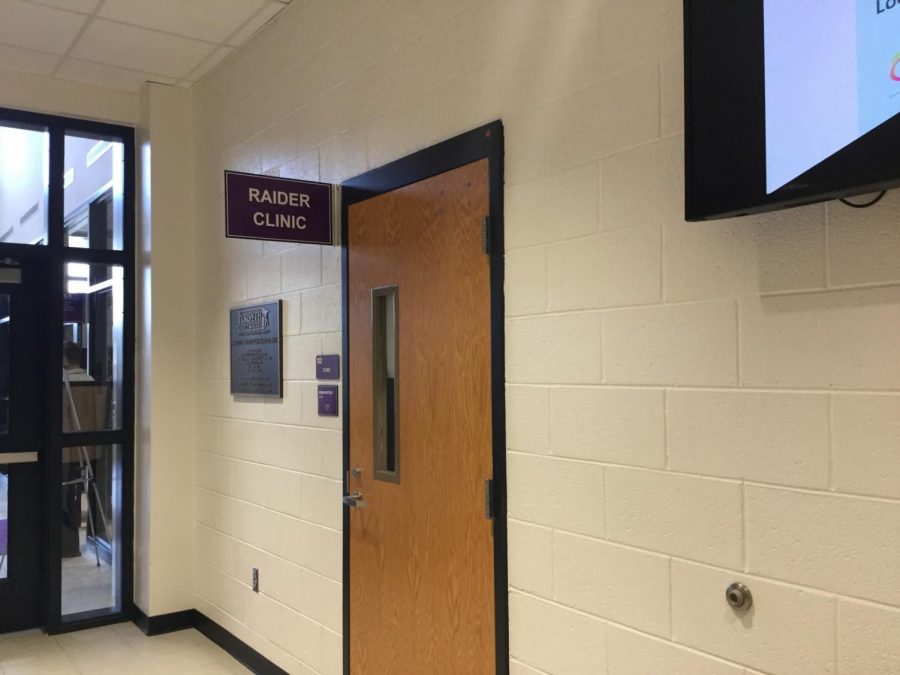The Spread of the Flu
Beside the front office lies the Raider Clinic where the office of NFHS’ school nurse, Robyn Harris, is located.
January 31, 2019
The months between December and February mark the height of flu season, the dreaded time of year where many high school students call in sick during this nation-wide epidemic. The late 2018 to early 2019 U.S. flu season marks the worst flu season in recent years, overtaking the 1918 flu epidemic with 80,000 flu-related deaths. Of these 80,000 deaths, 150 deaths were from Georgia; the state has had one of the highest rates of flu-activity this season.
Influenza, or the flu, is a communicable disease that spreads through coughing, sneezing and even talking with those infected with the flu. Basically, breathing in the midst of another sick person’s vicinity increases one’s chances of getting the flu. The 2018 flu season, in particular, was more dire because of the H3N2 virus strand, which is a rare subtype of the flu virus that many people have not had resistance to; this led to increased rates of sickness. The aftermath of the infectious flu season carried over into the 2019 new year; however, the severity of cases lessened as the predominant strand, H1N1, of the 2019 season causes less aggressive symptoms.
In an interview with Robyn Harris, North Forsyth High’s school nurse, she explained the rate of the occurrence of flu-related absences at NFHS. When asked the amount of students who fell sick this year, she reports that there were “around 10 confirmed cases” of the flu, as she could only refer to absences that had “an actual doctor’s note.”
Although science and other external factors play a role in the rise of flu cases each year, I believe that simple measures such as washing hands (for the appropriate amount of time), carrying hand sanitizer or staying home while you are sick can prevent the flu from being exasperated. Of course, staying home whilst being sick has several disadvantages to the student; in the words of Freshman Carena Ravenel, staying home is “super unfortunate because I have a lot of assignments to do.”
Flu vaccines, despite not being required for Forsyth County students, provide the greatest protection against the flu. According to healthline.com, the 2019 flu vaccine is “40 percent effective” against the most prominent flu strains. Additionally, other benefits of getting the flu vaccine include protecting your friends and family, especially those in high-risk groups like the elderly and younger children; it also reduces the risk of going to the doctor for flu-related cases from 40 percent to 60 percent.
As a final message to NFHS students, make sure to stay healthy during the second semester of high school, hopefully by doing said above. These recommendations are a definite start.














